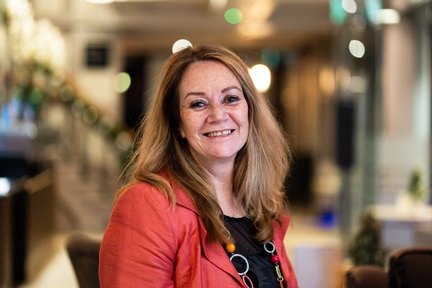Communication training for parents reduces severity of autism in children
An early intervention aimed at helping parents communicate with their child has been shown to have an effect on reducing the severity of autism characteristics, new research has revealed.

Published in The Lancet, the study was conducted by researchers at the University of Manchester, King's College London, and Newcastle University who found that children who had received the intervention aged between two and four had less severe overall symptoms six years later, with children displaying improvements in social communication and a reduction in repetitive behaviour.
Professor Jonathan Green at the University of Manchester, who led the study, said: "This type of early intervention is distinctive in being designed to work with parents to help improve parent-child communication at home.
"The advantage of this approach over a direct therapist-child intervention is that it has potential to affect the everyday life of the child. Our findings are encouraging, as they represent an improvement in the core symptoms of autism previously thought very resistant to change.
'Not a cure'
“This is not a 'cure', in the sense that the children who demonstrated improvements will still show remaining symptoms to a variable extent, but it does suggest that working with parents to interact with their children in this way can lead to improvements in symptoms over the long-term."
The original Pre-School Autism Communication Trial (Pact) involved 152 children with autism, with parents participating in 12 therapy sessions over a six-month period. In addition to this, parents agreed to daily 20-30 minute sessions of communication and play activities with their children, and received a further six months of follow-up support following the trial.
The type of early intervention used in the study was focused specifically on working with parents. Through watching videos of themselves interacting with their child and receiving feedback from therapists, parents could enhance their awareness and response to their child's unusual patterns of communication. They became better able to understand their child and communicate back appropriately in a focused way.
Researchers conducted a follow-up analysis approximately six years after the trial, involving 121 of the original participants, 59 of which had received the Pact intervention. When scoring the severity of autism within children on a scale of one to 10, the study found a 17 per cent reduction in the proportion of children from the intervention group with severe symptoms.
There were also improvements in children's communication with their parents for the intervention group, but no differences in the language scores of children. Additionally, parents in the intervention group reported improvements in peer relationships, social communication and repetitive behaviours. However, there was no reported difference between the two groups on measures of child anxiety, challenging behaviours or depression.
'Additional interventions'
Autism spectrum disorder (ASD) is a developmental disorder that affects about one in one hundred people. It can have a profound effect on children's social development into adulthood and results in an estimated £1-1.5m in lifetime costs for families and the community.
Professor Tony Charman and professor Andrew Pickles from King's College London, said: "Our findings suggest that sustained changes in autism symptoms are possible after early intervention, something that has previously been regarded as difficult to achieve.
"However, we found no evidence of any effect on child mental health, such as anxiety or challenging behaviours, suggesting that additional interventions may be needed to address these difficulties at later ages. As these children grow up, they will continue to need support in many aspects of their lives. We are currently working to further enhance our intervention."
Researchers note that the study included children with core autism symptoms rather than wider autism spectrum disorder, and therefore cannot be sure how these results would apply to children with less severe symptoms.
For more information, visit: www.thelancet.com
Latest News
 24-Apr-24
Find out the top nurseries in 2024
24-Apr-24
Find out the top nurseries in 2024
 06-Jun-23
UK's top nurseries in 2023 revealed
06-Jun-23
UK's top nurseries in 2023 revealed
 16-Dec-22
Winter Wonderland: Ice sculptures, aerial acrobatics and white knuckle rides
16-Dec-22
Winter Wonderland: Ice sculptures, aerial acrobatics and white knuckle rides
 28-Nov-22
5 mins with Caroline Wright, early childhood director at Bright Horizons
28-Nov-22
5 mins with Caroline Wright, early childhood director at Bright Horizons
 25-Nov-22
Camilla gives nursery children Paddington bears left as tribute to Queen Elizabeth II
25-Nov-22
Camilla gives nursery children Paddington bears left as tribute to Queen Elizabeth II